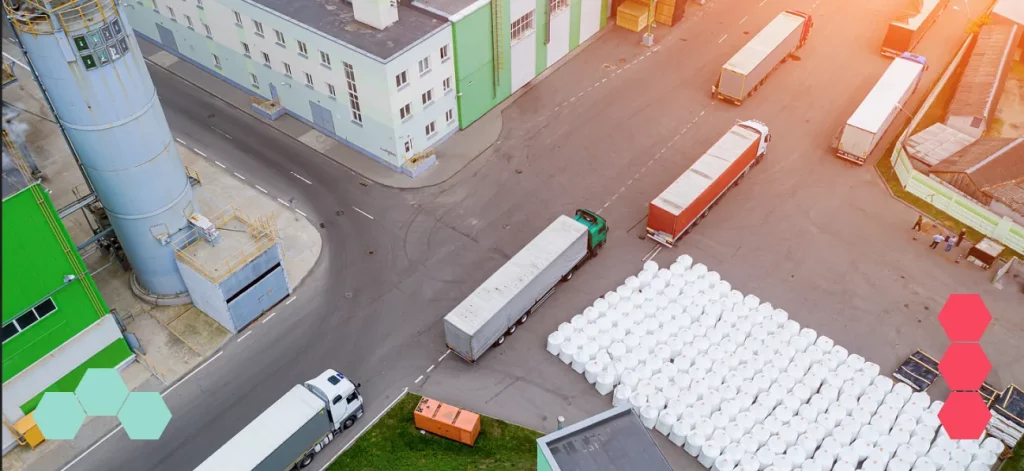Key challenges of medication delivery to Kazakhstan

The complexities of transporting pharmaceutical products to Kazakhstan might be challenging. In this article, we will cover the legal, logistical, and regulatory issues involved. It benefits pharmaceutical companies, healthcare providers, and logistics operators looking to understand the best practices for delivering medications safely and complying with Kazakhstan’s requirements.
Key points:
- Compliance with Kazakhstan’s regulations: importing pharmaceuticals requires adherence to Good Distribution Practice (GDP) standards and national registration requirements.
- Ideal countries to source from: India, China, and European countries such as Germany and Czechia are key suppliers, but navigating customs procedures is essential to avoid delays.
- Cold chain logistics: maintaining correct temperatures throughout transit is crucial, and not all delivery companies have the necessary infrastructure.
- Synex’s expertise: Synex is one of the few operators fully equipped to handle the complexities of pharmaceutical transport, offering a reliable and compliant solution.
Legal framework for medications import to Kazakhstan
Imagine navigating through a maze of regulations just to deliver life-saving medications to Kazakhstan. It’s not just about packing up pharmaceuticals and sending them on their way. The path is lined with legal checkpoints, each more crucial than the last.
Kazakhstan’s import regulations are subject to national laws and international agreements. The key document here is the registration certificate, proving that the product has passed all necessary tests and has been vetted by the appropriate authorities. Without this, medications cannot enter the country legally.
Pharmaceutical companies must adhere to the country’s Good Distribution Practice (GDP) standards and a stringent set of guidelines to ensure the quality of medicines during trucking and logistics pharmacy management. The GDP covers everything from proper handling and storage conditions to personnel and transport equipment qualification. With its harsh winters and scorching summers, Kazakhstan’s climate only amplifies the importance of these regulations. Operators must use vehicles with temperature-controlled environments and trained staff to handle delicate goods.
Where to contract pharmacy transportation from?
Popular options include India, China, and the European Union — each offering distinct advantages.
Importing from India
India is known as the “pharmacy of the world,” and with good reason. It is the leading producer of generic medications, and its pharmaceutical industry adheres to stringent international quality standards. Contracting from India means access to affordable, high-quality drugs that meet global regulatory requirements. The country has a well-established pharmaceutical export infrastructure, meaning it’s no stranger to large-scale international deliveries. However, the key challenge lies in the distance and the sometimes lengthy customs process, which can delay shipments unless handled by experienced operators.

Importing from China
China is another major player in pharmaceutical exports, especially for active pharmaceutical ingredients. China is an appealing option if you’re looking to source bulk medications at competitive prices. The country has strong logistics networks and deep experience in global supply chain management, making it a reliable shipment source.
Importing from the European Union
Regarding contracting pharmacy transportation from Europe, Germany and Czechia are reliable sources. Both countries have highly advanced pharmaceutical industries, known for their quality control standards and adherence to EU regulations. Additionally, both countries have well-established logistics networks, allowing for seamless transportation routes to Kazakhstan.
Keeping medications safe during transport
Medications are sensitive to temperature, humidity, and light, and the journey from distant locations like India, China, or the European Union can take days—or even weeks—depending on the route and customs procedures. Ensuring these vital products remain effective and safe during transport requires a meticulous approach, including:
- Temperature control
- Proper packaging
- Tracking and monitoring
Restrictions on pharmaceutical delivery
One of the critical challenges in transporting pharmaceuticals across borders is navigating the various regulatory restrictions. GDP standards ensure products are consistently stored, transported, and handled under the right conditions, maintaining their quality and safety.
It’s not just about meeting Kazakhstan’s requirements — countries like India, China, and EU also have their own export regulations, which must be carefully followed to avoid any customs hold-ups.
Not all operators can manage pharmaceutical transport
Transporting pharmaceuticals is a challenging task. Let’s break down why so few companies can handle the complexities of this high-stakes operation.
- Compliance with stringent regulations: every step in the process, from sourcing the medications to delivering them to their destination, is subject to rigorous oversight.
- The cold chain challenge: even a brief exposure to higher or lower temperatures can degrade the medication, making it useless.
- Handling and packaging expertise: the packaging of pharmaceutical products must be tailored to the specific needs of each medication, with specialized materials that shield against environmental threats.
- Limited access to qualified staff: handling and transporting medications demands unique skills, from understanding pharmaceutical regulations to storing and transporting temperature-sensitive products safely.

SYNEX Logistics – a trusted name in pharmaceutical logistics
While many logistics companies are simply not equipped to handle the complexities of pharmaceutical transport, Synex thrives in this challenging field. The company built a reputation for delivering sensitive medications safely, reliably, and fully complying with Kazakhstan’s regulations. This makes us one of the few operators that healthcare providers and pharmaceutical companies can trust with such critical shipments.
Conclusion
Transporting pharmaceuticals to Kazakhstan is a regulated, complex process that demands precision, expertise, and a deep understanding of pharmacy logistics and healthcare. Not all operators are equipped to handle these challenges. Many lack the necessary cold chain infrastructure, GDP certifications, and trained personnel to deliver pharmaceutical products reliably. The stakes are high, as any deviation from prescribed conditions can result in spoiled medications, financial losses, and, most critically, compromised patient health. Synex stands out as one of the few pharmaceutical logistics companies capable of rising to the occasion. With our advanced technology, extensive regulatory knowledge, and carefully trained team, we offer a reliable solution for pharmaceutical transportation. Contact us today to learn how we can help your business.




